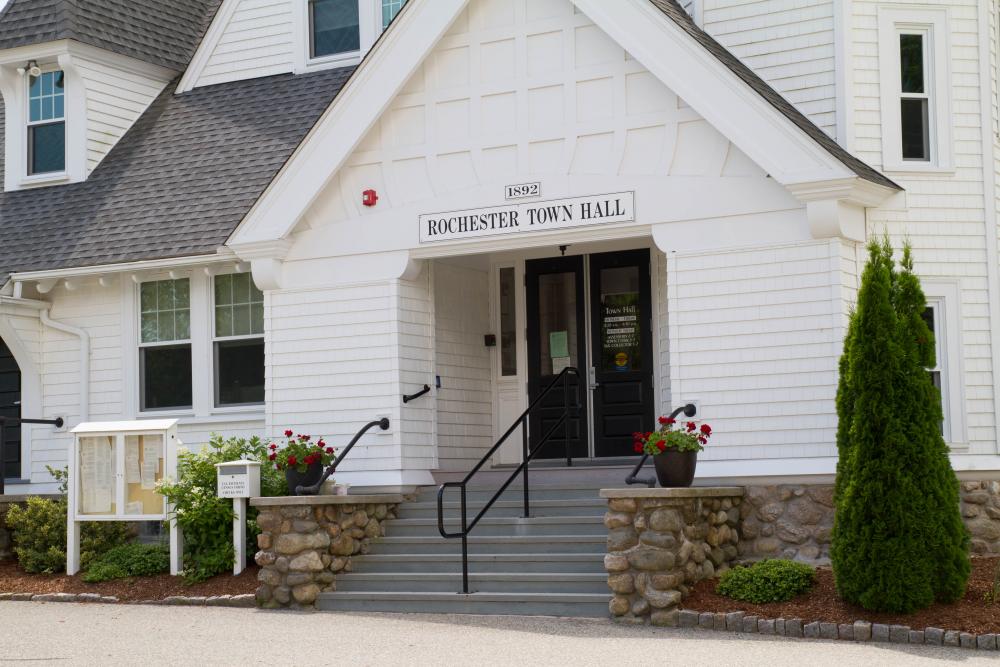Ambiguous bylaw leads to dog license confusion
ROCHESTER — Dog owners of Rochester can breathe a sigh of relief knowing that regardless of their dog’s licensing status, no one is going to kidnap their furry friend — or at least not the animal control officer.
Tension arose last week after Rochester Town Clerk Paul Dawson posted a notice on the town website warning dog owners that dog registrations were past due and that a warrant had been signed authorizing the capture and confinement of all unlicensed dogs.
The public notice also contained a file listing the names, addresses and telephone numbers of allegedly unlicensed dogs and their owners, further adding to the impression that the town would be rounding up such animals in the near future.
Upset dog owners took to Facebook to voice their displeasure with the notice, which was perceived as threatening, and with the list, which was seen as unnecessary and in some cases misleading.
One Facebook commenter, for instance, said she was put on the list for failing to register a dog that had died last year, despite registering her other two dogs.
As of Sept. 22, the notice on the town website appeared to be amended to exclude the list of unlicensed dogs.
“What happened on Facebook was that Paul was trying to get the word out so people wouldn’t end up getting extra fines, but it kind of backfired,” said Town Administrator Suzanne Szyndlar. Though she added, “Paul regrets publishing the list of addresses and phone numbers.”
Dawson, who was hired two years ago, said that this was his first year dealing with the enforcement of dog licensing as no enforcement efforts were made last year because of covid, and he was just trying to give people fair warning about the town bylaws on the subject.
“I get that people perceived it as a threat, but that was never the intention,” he said. “I just cut and pasted the language from the warrant.”
The phrasing of the bylaw in question is somewhat ambiguous, stating that the animal control officer is “required to catch and confine all dogs within the Town of Rochester not duly licensed, collared or harnessed and tagged.”
Many, including Dawson, seemingly understood the statement as requiring the capture of any dog lacking a license, a collar, or a tag.
However, that is not how the law has been applied by longtime Rochester Animal Control Officer Anne Estabrook who said that the statement about catching and confining animals was “taken out of context.”
She explained that their standard procedure has always been to take stray dogs to the shelter only if they cannot be identified. Once at the shelter though, owners of unlicensed dogs are required to pay licensing fees before they can collect their dog.
Estabrook said that she has never been directed to catch or confine dogs that are not strays purely for being unlicensed.
In other words, in Estabrook’s estimation a dog must fulfill all three requirements (no license, no collar, and no tags) before they are captured and confined.
So while the law is not applied harshly in practice, it is as yet unclear which reading of the bylaw is the correct one based on the letter of the law.
The bylaw was originally passed at a Rochester Town Meeting in 1988 and its language was taken directly from a similar law on the books in Plymouth, according to Szyndlar.
Furthermore, Massachusetts General Law actually requires that such a warrant be issued annually by the select boards of each town, though there is a subtle difference in the language in that law.
The state law reads: “The mayor or board of selectmen, as the case may be, shall annually issue a warrant to the animal control officer directing the officer to seek out, catch and confine all dogs within the city or town which are not licensed, collared or harnessed, or tagged.”
The state law therefore differs in that it includes an oxford comma after “harnessed” and replaces “and tagged” with “or tagged” further muddling the distinction.
Szyndlar said that while there may not be an issue with the way the law is enforced in practice, she was open to the idea of using other methods to get people to register their dogs.
“There are other means that you can go with [to get people to license their dogs],” she said. But “at some point in time you have to have some kind of penalty.”
Any change to the bylaw would have to be passed at a future Town Meeting. However, voters will soon get a chance to decide on another aspect of the dog licensing law.
At next month’s Town Meeting, voters will be asked to decide whether to shorten the licensing period from six months to three months, meaning that dog owners would need to register their pets by the end of March, rather than the end of June to avoid late fees.
The change would also push forward the signing of the warrant to capture unlicensed dogs by three months, meaning it would be issued sometime in July rather than September.












